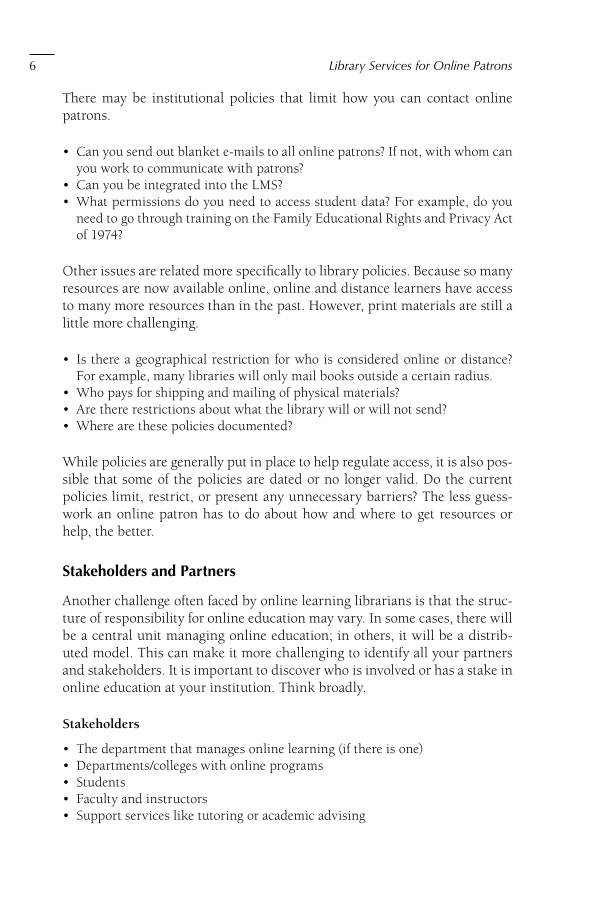6 Library Services for Online Patrons There may be institutional policies that limit how you can contact online patrons. • Can you send out blanket e-mails to all online patrons? If not, with whom can you work to communicate with patrons? • Can you be integrated into the LMS? • What permissions do you need to access student data? For example, do you need to go through training on the Family Educational Rights and Privacy Act of 1974? Other issues are related more specifi cally to library policies. Because so many resources are now available online, online and distance learners have access to many more resources than in the past. However, print materials are still a little more challenging. • Is there a geographical restriction for who is considered online or distance? For example, many libraries will only mail books outside a certain radius. • Who pays for shipping and mailing of physical materials? • Are there restrictions about what the library will or will not send? • Where are these policies documented? While policies are generally put in place to help regulate access, it is also pos- sible that some of the policies are dated or no longer valid. Do the current policies limit, restrict, or present any unnecessary barriers? The less guess- work an online patron has to do about how and where to get resources or help, the better. Stakeholders and Partners Another challenge often faced by online learning librarians is that the struc- ture of responsibility for online education may vary. In some cases, there will be a central unit managing online education in others, it will be a distrib- uted model. This can make it more challenging to identify all your partners and stakeholders. It is important to discover who is involved or has a stake in online education at your institution. Think broadly. Stakeholders • The department that manages online learning (if there is one) • Departments/colleges with online programs • Students • Faculty and instructors • Support services like tutoring or academic advising
Document Details My Account Print multiple pages
Print
You have printed 0 times in the last 24 hours.
Your print count will reset on at .
You may print 0 more time(s) before then.
You may print a maximum of 0 pages at a time.





















































































































































































































